Shows
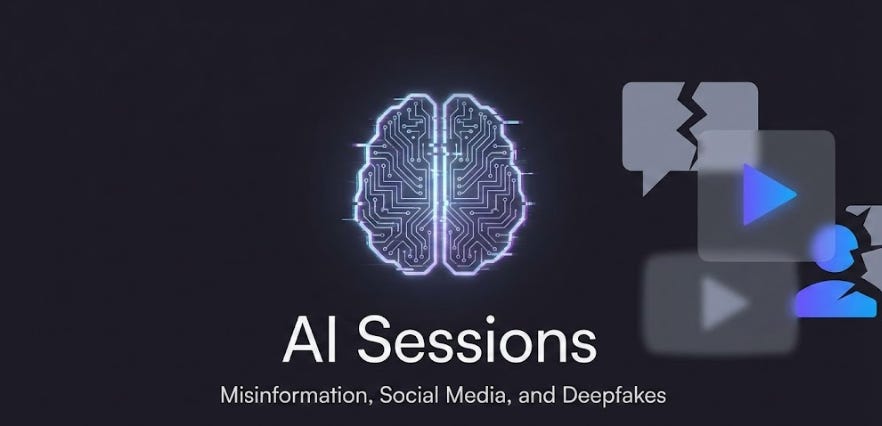
Conspicuous Cognition PodcastAI Sessions #8: Misinformation, Social Media, and Deepfakes (with Sacha Altay)Henry and I chat with Dr Sacha Altay about:* How prevalent is misinformation?* What even is “misinformation”?* Is there a difference between politics and science?* How impactful are propaganda, influence campaigns, and advertising?* What impact has social media had on modern democracies?* How worried should we be about the impact of generative AI, including deepfakes, on the information environment?* The “liar’s dividend”* Whether ChatGPT is more accurate and less biased than the average politician, pundit, and voter. Links* Sacha Alta...
2026-01-231h 23
The Jas Johal ShowCan AI chatbots influence your voting decisions?Guest: Gordon Pennycook, Associate Professor at Cornell University’s Department of Psychology Learn more about your ad choices. Visit megaphone.fm/adchoices
2025-12-2713 min
10 Seconds To AirUnderstanding the Science Behind Human Stupidity with Gordon PennycookWhy do smart people fall for bad information? Why does bullshit spread faster than truth? And what can we really do to protect ourselves from misinformation in a chaotic media landscape?
Alita Guillen sits down with Dr. Gordon Pennycook, Associate Professor of Psychology at Cornell University and a leading researcher on human reasoning, intuition, misinformation, and what he famously calls “The Science of Human Stupidity.” His work reveals why our brains default to shortcuts, how social media exploits those habits, and—most importantly—how simple moments of reflection can dramatically improve our judgment.
Together, they explore...
2025-12-2346 min
Therapie auf den PunktStatus-Games #7 - Krise der Expertise (Dan Williams)Wissen ist relevant für Status: Es kränkt uns, wenn andere uns widerlegen und uns zeigen, dass sie mehr wissen als wir. Deshalb ist Expertise immer eine heikle Angelegenheit. Dadurch erklärt Dan Williams, wieso Populisten in den USA und Europa Sturm gegen wissensproduzierende Institutionen laufen, die sie zu unterlegenen Rezipienten epistemischer Almosen degradieren.Status ist aber nicht die einzige Erklärung, z. B. führt Gordon Pennycook die Neigung zu populistischen Falschinfomationen auf sog. unthinkingness zurück - auf zu ausgeprägte heuristische System-1-Verarbeitung.Wir wägen beide Ansätze gegeneina...
2025-11-1940 min
Decoding the GurusSupplementary Material 39: Bad Guys, Panpsychists, and SensemakersChris and Matt walk into a bar with an atheist sensemaker, an Ayurvedic Guru, and a Christian Apologist, and predictable frivolities ensue. Featuring not one but two good-natured, robust exchanges of opinion between our two hosts.The full episode is available to Patreon subscribers (1 hour, 42 minutes).Join us at: https://www.patreon.com/DecodingTheGurusSupplementary Material 39: Panpsychics, Sensemakers, and Bad Guys00:00 Introduction01:17 AI and the Music Industry05:34 Is Chris a Bad Guy?10:44 Vibe Physics with Travis Kalanick16:10 Efforts to Falsify and AI
2025-11-0137 min
Sean Carroll's Mindscape: Science, Society, Philosophy, Culture, Arts, and IdeasGordon Pennycook on Unthinkingness, Conspiracies, and What to Do About ThemWhy are people wrong all the time, anyway? Is it because we human beings are too good at being irrational, using our biases and motivated reasoning to convince ourselves of something that isn't quite accurate? Or is it something different -- unmotivated reasoning, or "unthinkingness," an unwillingness to do the cognitive work that most of us are actually up to if we try? Gordon Pennycook wants to argue for the latter, and this simple shift has important consequences, including for strategies for getting people to be less susceptible to misinformation and conspiracies. Blog post with transcript: https...
2025-10-271h 10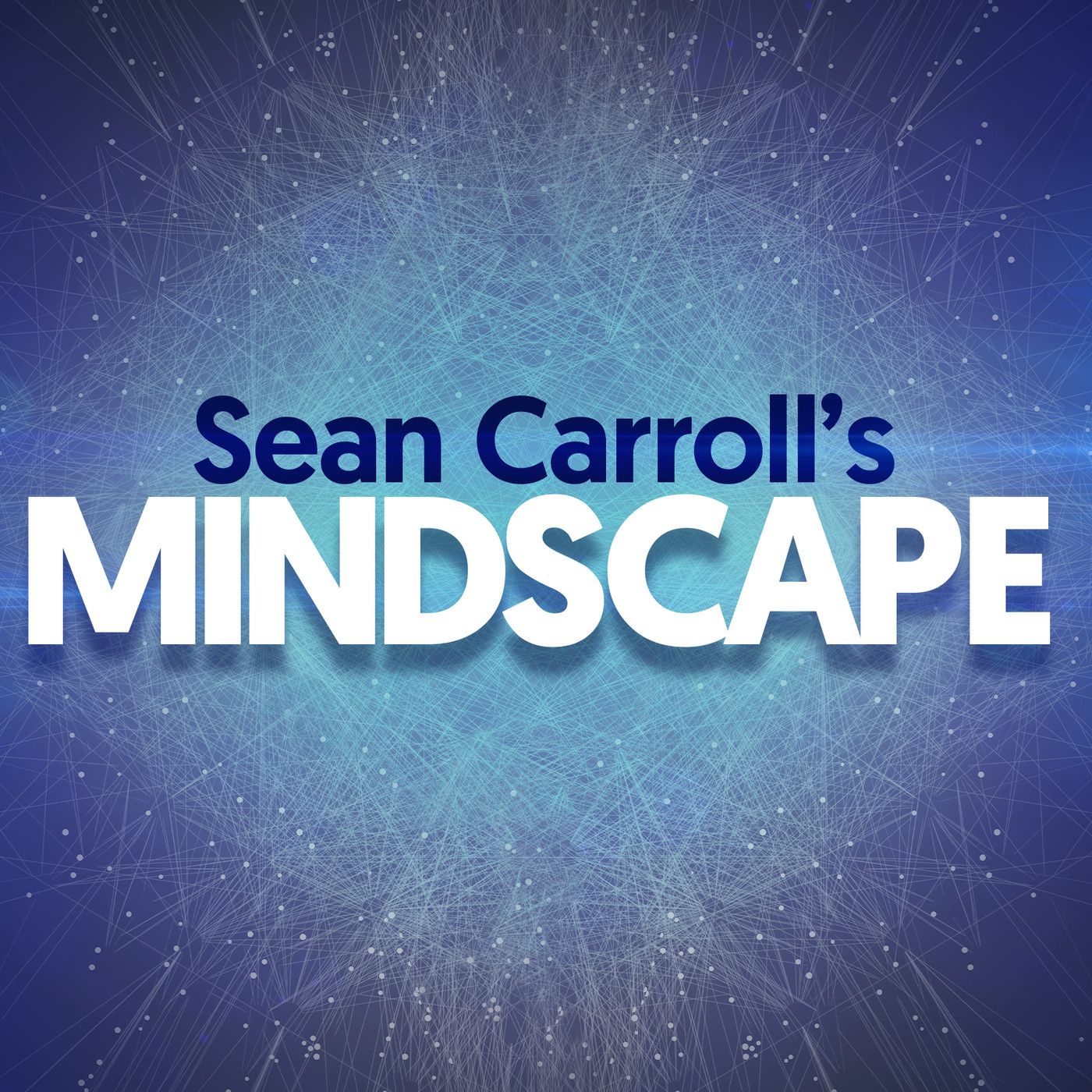
Sean Carroll's Mindscape333 | Gordon Pennycook on Unthinkingness, Conspiracies, and What to Do About ThemWhy are people wrong all the time, anyway? Is it because we human beings are too good at being irrational, using our biases and motivated reasoning to convince ourselves of something that isn't quite accurate? Or is it something different -- unmotivated reasoning, or "unthinkingness," an unwillingness to do the cognitive work that most of us are actually up to if we try? Gordon Pennycook wants to argue for the latter, and this simple shift has important consequences, including for strategies for getting people to be less susceptible to misinformation and conspiracies.Blog post with transcript: https://www.preposterousuniverse.com...
2025-10-271h 10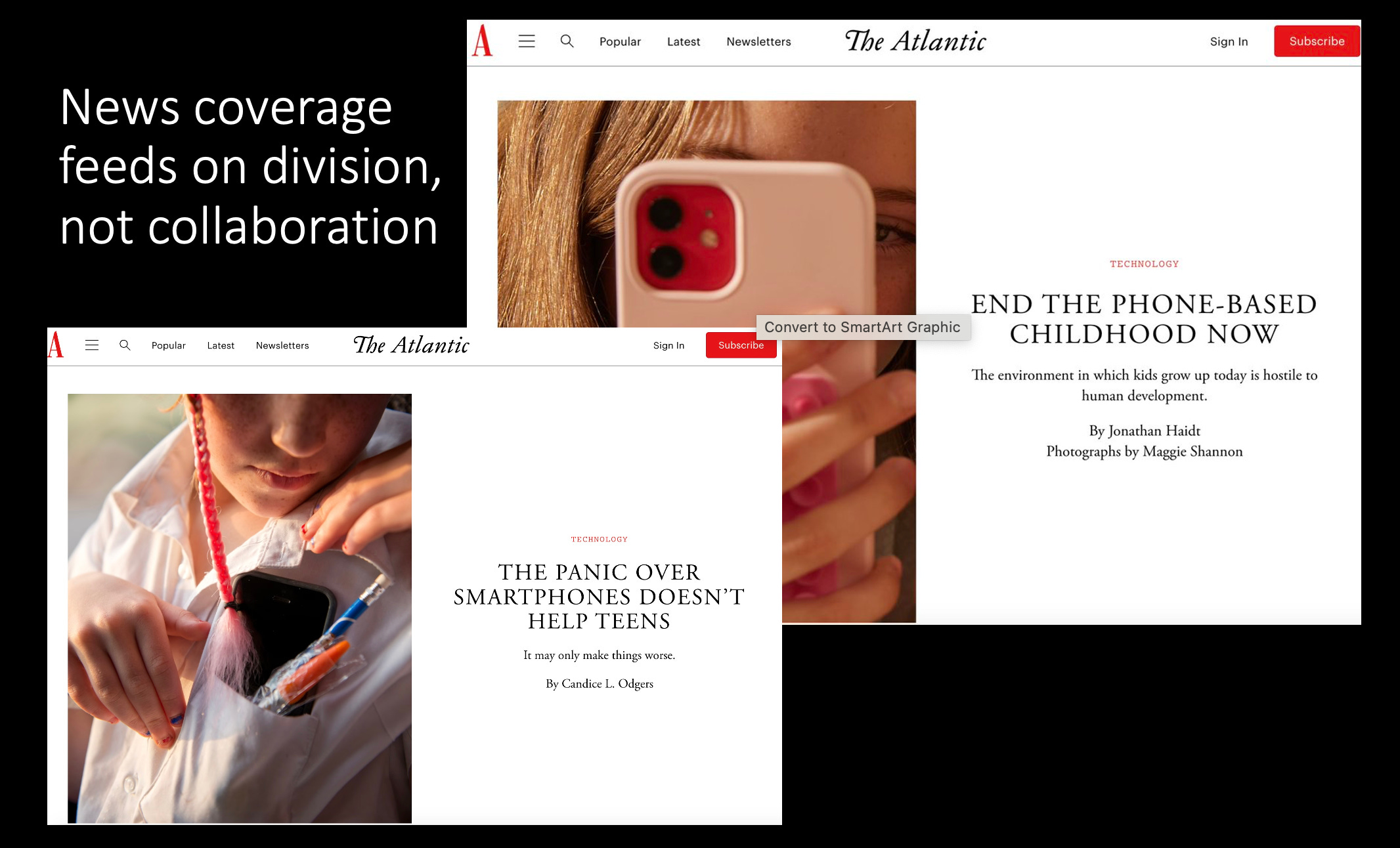
Sustain What?How “Adversarial Collaboration” Can Improve Research When Scientists ClashI hope you’ll watch and share this fresh and fascinating discussion of a project hosted at the University of Pennsylvania aimed at fostering “adversarial collaboration” when researchers - as just one example - clash in the literature over data that could reveal why humans tend to hold fast to certain beliefs and when and how they update them. I can’t imagine a more important question these days. My guests were project co-director Cory J. Clark and Gordon Pennycook, an associate professor of psychology at Cornell who is involved with several such efforts. You can expl...
2025-09-161h 00
Why? with Emma KennedyWhy do we fall for fake news?We’re back and we’ve got some questions. How does fake news pull us in? From deepfakes to dodgy headlines, we’re constantly navigating a minefield of misinformation. It spreads faster than the truth, plays on our emotions, and can confirm what we want to believe. This week, Emma Kennedy is joined by Dr. Gordon Pennycook, Associate Professor of Psychology at Cornell University and Dr. David Rand, Professor of Brain and Cognitive Sciences at MIT, to find out why it is so hard to combat fake news? WHY? is presented by Emma Kennedy. Produced by Liam...
2025-07-2325 min
Why? with Emma KennedyWhy do we fall for fake news?We’re back and we’ve got some questions. How does fake news pull us in? From deepfakes to dodgy headlines, we’re constantly navigating a minefield of misinformation. It spreads faster than the truth, plays on our emotions, and can confirm what we want to believe.
This week, Emma Kennedy is joined by Dr. Gordon Pennycook, Associate Professor of Psychology at Cornell University and Dr. David Rand, Professor of Brain and Cognitive Sciences at MIT, to find out why it is so hard to combat fake news?
WHY? is presented by Emma Kennedy. Produced by Liam...
2025-07-2329 min
Mind Matters mit Lotte – der Psychologie-Podcast für Klarheit und Gelassenheit im Berufsalltag.Das muss doch ein Zeichen sein!- oder vielleicht doch nur ein Zufall?
Literatur & Wissenschaftliche Konzepte
Kahneman, Daniel (2011): Schnelles Denken, langsames Denken. Siedler Verlag.
→ Konzept: Intuitives vs. reflektiertes Denken, Kohärenzbedürfnis.
Festinger, Leon (1957): A Theory of Cognitive Dissonance. Stanford University Press.
→ Konzept: Kognitive Dissonanz, Dissonanzreduktion.
Pennycook, Gordon et al. (2015): On the reception and detection of pseudo-profound bullshit. Judgment and Decision Making, 10(6), 549–563.
→ Thema: Bullshit-Rezeptivität und die Illusion von Sinn.
Chopra, Deepak (2003): The Spontaneous Fulfillment of Desire: Harnessing the Infinite Power of Coincidence. Harmony Books.
→ Konzept: Synchronicität, spirituelle Deutung von Zufällen.
Friston, Karl (2005): A theory of cortical respon...
2025-07-0925 min
LeadershiftEpisode 284: Attention bullsh*tDonnez-moi votre feedback par SMS (mobile uniquement)!Le bullshit pseudo-profond est un discours flou et pompeux qui semble profond mais ne dit rien de concret. Il attire les initiés en utilisant des phrases qui brillent plus que les idées, où le flou est valorisé et où l'acceptation de l'incertitude est vue comme une qualité. Gordon Pennycook a démontré que les gens trouvent souvent ces phrases profondes, surtout ceux qui manquent de pensée analytique, car notre esprit comble les lacunes et cherche la cohérence. Le bullshit permet de paraître profond sans dire quoi que ce...
2025-07-0718 min
BJKS Podcast112. Gordon Pennycook: From Carrot River to Cornell, misinformation, and reducing conspiracy beliefsGordon Pennycook is an Associate Professor at Cornell University. We talk about his upbringing in rural Northern Canada, how he got into academia, and his work on misinformation: why people share it and what can be done about it.BJKS Podcast is a podcast about neuroscience, psychology, and anything vaguely related, hosted by Benjamin James Kuper-Smith.Support the show: https://geni.us/bjks-patreonTimestamps0:00:00: Straight outta Carrot River: From Northern Canada to publishing in Nature0:37:01: Exploration vs focusing on one topic: finding your research topic0:48:57: A sense...
2025-02-171h 50
Katalog głupotyTeorie spiskoweTeorie spiskowe otaczają nas ze wszystkich stron. Mogą kojarzyć się z niszowymi zakamarkami internetu, ale w rzeczywistości łatwo je odnaleźć w mainstreamowych mediach czy wypowiedziach czołowych polityków. Jak je rozpoznawać? Jak się przed nimi wystrzegać?Źródła:American Conspiracy Theories, Joseph Parent, Joseph UscinskiAnomaly Hunting, Steven NovellaAnalytic thinking reduces belief in conspiracy theories, Viren Swami, Martin Voracek, Stefan Stieger, Ulrich S Tran, Adrian FurnhamConspiracy theories as quasi-religious mentality: an integrated account from cognitive science, social representations theory, and frame theory, Bradley Franks, Adrian Bangerter, Martin W BauerFads and Fa...
2025-02-141h 09
The Behavioral Design PodcastMisinformation Machines with Gordon Pennycook – Part 2Debunkbot and Other Tools Against Misinformation
In this follow-up episode of the Behavioral Design Podcast, hosts Aline Holzwarth and Samuel Salzer welcome back Gordon Pennycook, psychology professor at Cornell University, to continue their deep dive into the battle against misinformation.
Building on their previous conversation around misinformation’s impact on democratic participation and the role of AI in spreading and combating falsehoods, this episode focuses on actionable strategies and interventions to combat misinformation effectively.
Gordon discusses evidence-based approaches, including nudges, accuracy prompts, and psychological inoculation (or prebunking) techniques, that empower individuals to better ev...
2024-11-061h 03
The Behavioral Design PodcastMisinformation Machines with Gordon Pennycook – Part 1The Role of Misinformation and AI in the US Election with Gordon Pennycook
In this episode of the Behavioral Design Podcast, hosts Aline and Samuel explore the complex world of misinformation in the context of the U.S. elections with special guest Gordon Pennycook, a psychology professor at Cornell University.
The episode covers the effects of misinformation on democratic participation, and how behavioral science sheds light on reasoning errors that drive belief in falsehoods. Gordon shares insights from his groundbreaking research on misinformation, exploring how falsehoods gain traction and the role AI can play in...
2024-11-0453 min
Research MattersGordon Pennycook on how to improve a ‘prebunking’ techniqueAs social media platforms deployed psychological “inoculation” on a large scale, hoping to help people spot techniques common to misinformation, Gordon Pennycook, associate professor and Himan Brown Faculty Fellow in the Department of Psychology and College of Arts and Sciences, had doubts about its effectiveness. He discusses new research identifying a way to strengthen inoculations, and why he began studying misinformation.Read more about it.
2024-11-0418 min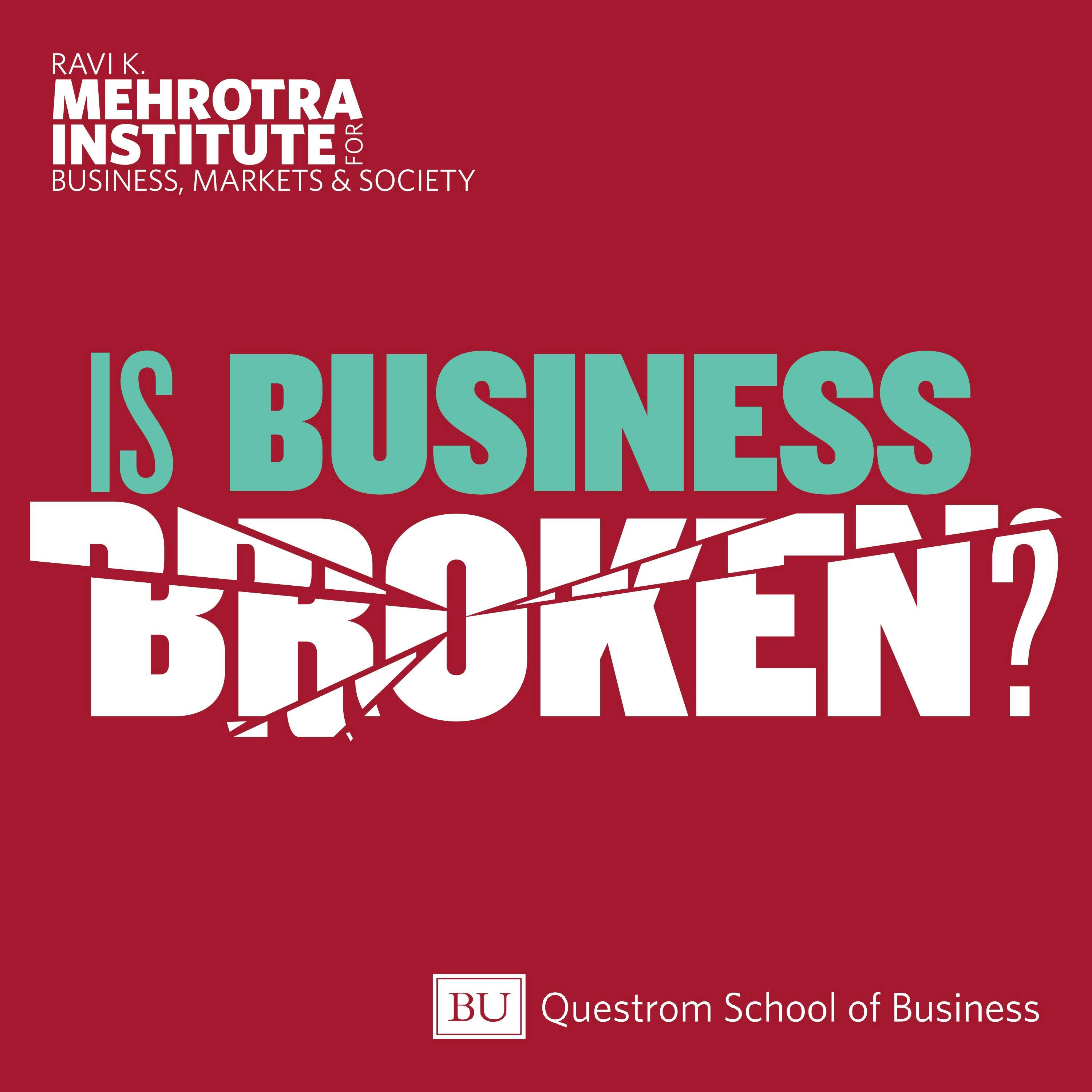
Is Business Broken?How Can We Understand Online Misinformation?From political lies to viral conspiracy theories, misinformation has reshaped our digital landscape—creating confusion, influencing public perception, and altering national debates.Just how widespread has misinformation become? What are the roles that social media platforms play, and what are some potential solutions?Host Curt Nickisch speaks to Marshall Van Alstyne, the Allen and Kelly Questrom Professor in Information Systems at Boston University Questrom School of Business and Gordon Pennycook, Associate Professor of Psychology and Himan Brown Faculty Fellow at Cornell University Learn more about yo...
2024-10-3132 min
You Are Not So Smart299 - DebunkbotOur guests in this episode are Thomas H. Costello at American University, Gordon Pennycook at Cornell University, and David G. Rand at MIT who created Debunkbot, a GPT-powered, large language model, conspiracy-theory-debunking AI that is highly effective at reducing conspiratorial beliefs. In the show you’ll hear all about what happened when they placed Debunkbot inside the framework of a scientific study and recorded its interactions with thousands of participants.DebunkbotKittedHow Minds ChangeDavid McRaney’s TwitterYANSS TwitterShow NotesNewsletterPa...
2024-10-281h 09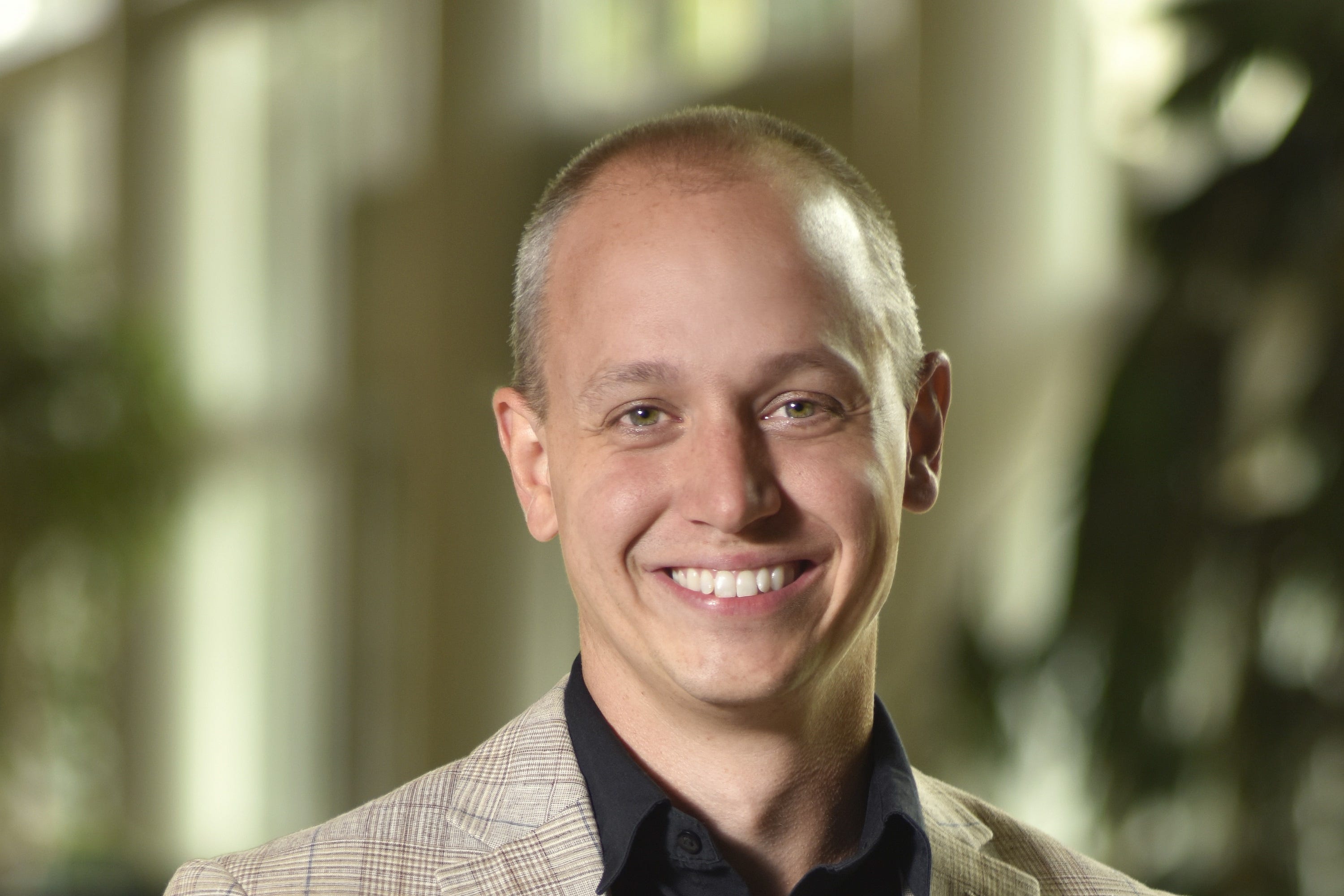
Rethinking WellnessIntuition, Wellness Misinformation, and the Importance of Analytical Thinking with Gordon PennycookThis is a free preview of a paid episode. To hear more, visit rethinkingwellness.substack.comCognitive psychologist Gordon Pennycook explains the psychological reasons we fall for misinformation, conspiracy theories, and general bullshit (a technical term!). We discuss why people with an analytical cognitive style tend to be more skeptical of alternative medicine and health misinformation, some of the pitfalls of intuitive thinking (and why intuitive eating may actually be more of an analytical or deliberative process), why being skeptical of out-there wellness practices is actually a sign of open-mindedness, why even very smart people can fall...
2024-10-2134 min
The Tech Policy Press PodcastUsing AI to Engage People about Conspiracy BeliefsIn May, Justin Hendrix moderated a discussion with David Rand, who is a professor of Management Science and Brain and Cognitive Sciences at MIT, the director of the Applied Cooperation Initiative, and an affiliate of the MIT Institute of Data, Systems, and Society and the Initiative on the Digital Economy. David's work cuts across fields such as cognitive science, behavioral economics, and social psychology, and with his collaborators he's done a substantial amount of work on the psychological underpinnings of belief in misinformation and conspiracy theories.David is one of the authors, with Thomas Costello and Gordon...
2024-08-0435 min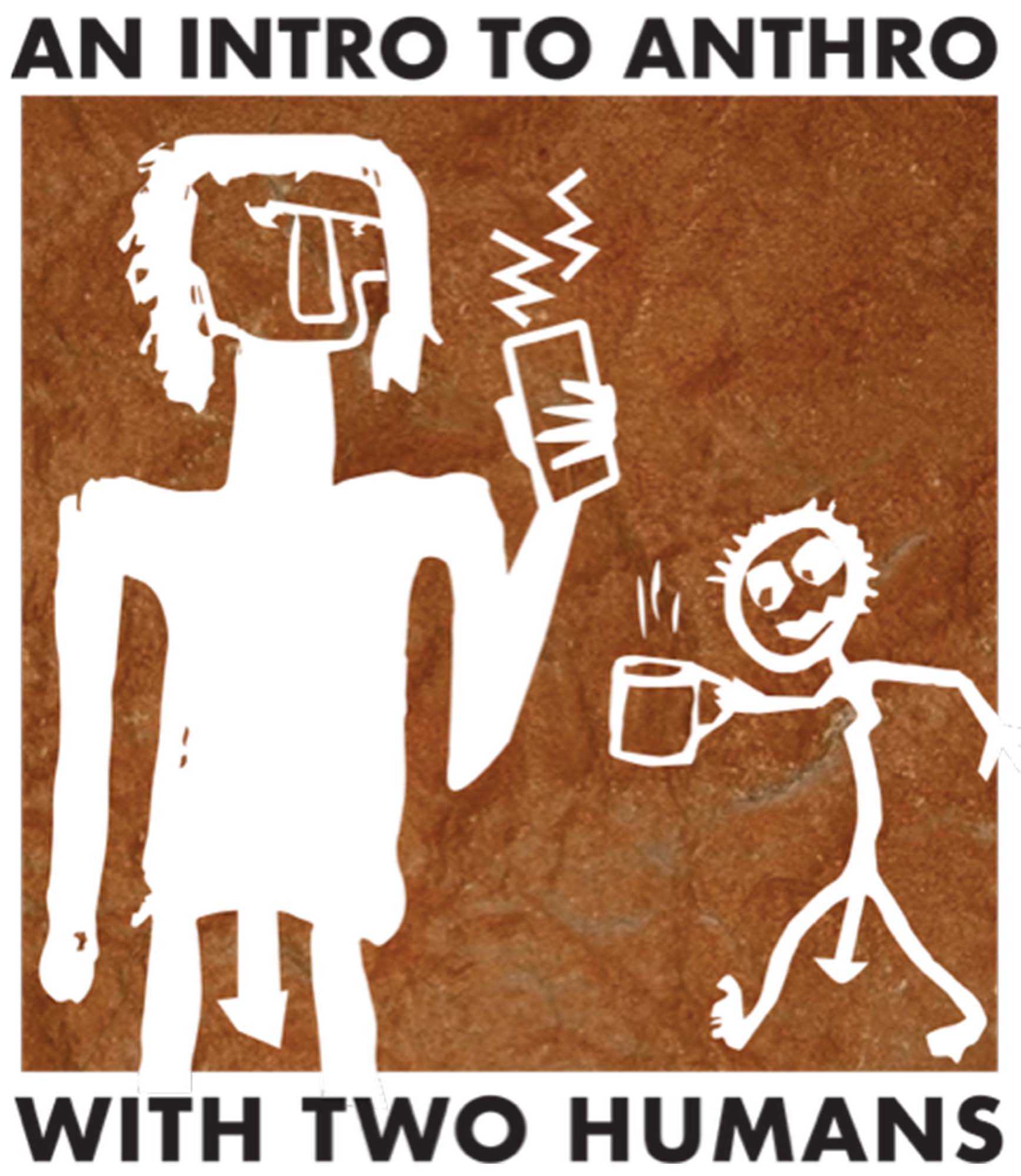
An Intro to Anthro with 2 HumansEpisode 49: WTF with ESP? Is it QED or BFD?I see you listening to a podcast… I sense you are going to like this one…The Two Humans clear their minds and project their thoughts about extrasensory perception.
Episode 49: “WTF with ESP? Is it QED or BFD?”
An Intro to Anthro with 2 Humans
Human Number One, John McCray, and Human Number Two, John Lehr, re-assess what it means to be human.
http://www.intro2anthro.podbean.com
https://www.facebook.com/profile.php?id=100093893313542
IG @introtoanthrowith2humans
Resources:
Carey, Benedict
2011 Journal’s...
2024-05-231h 19
An Intro to Anthro with 2 HumansEpisode 49: WTF with ESP? Is it QED or BFD?I see you listening to a podcast… I sense you are going to like this one…The Two Humans clear their minds and project their thoughts about extrasensory perception.
Episode 49: “WTF with ESP? Is it QED or BFD?”
An Intro to Anthro with 2 Humans
Human Number One, John McCray, and Human Number Two, John Lehr, re-assess what it means to be human.
http://www.intro2anthro.podbean.com
https://www.facebook.com/profile.php?id=100093893313542
IG @introtoanthrowith2humans
Resources:
Carey, Benedict
2011 Journal’s...
2024-05-231h 19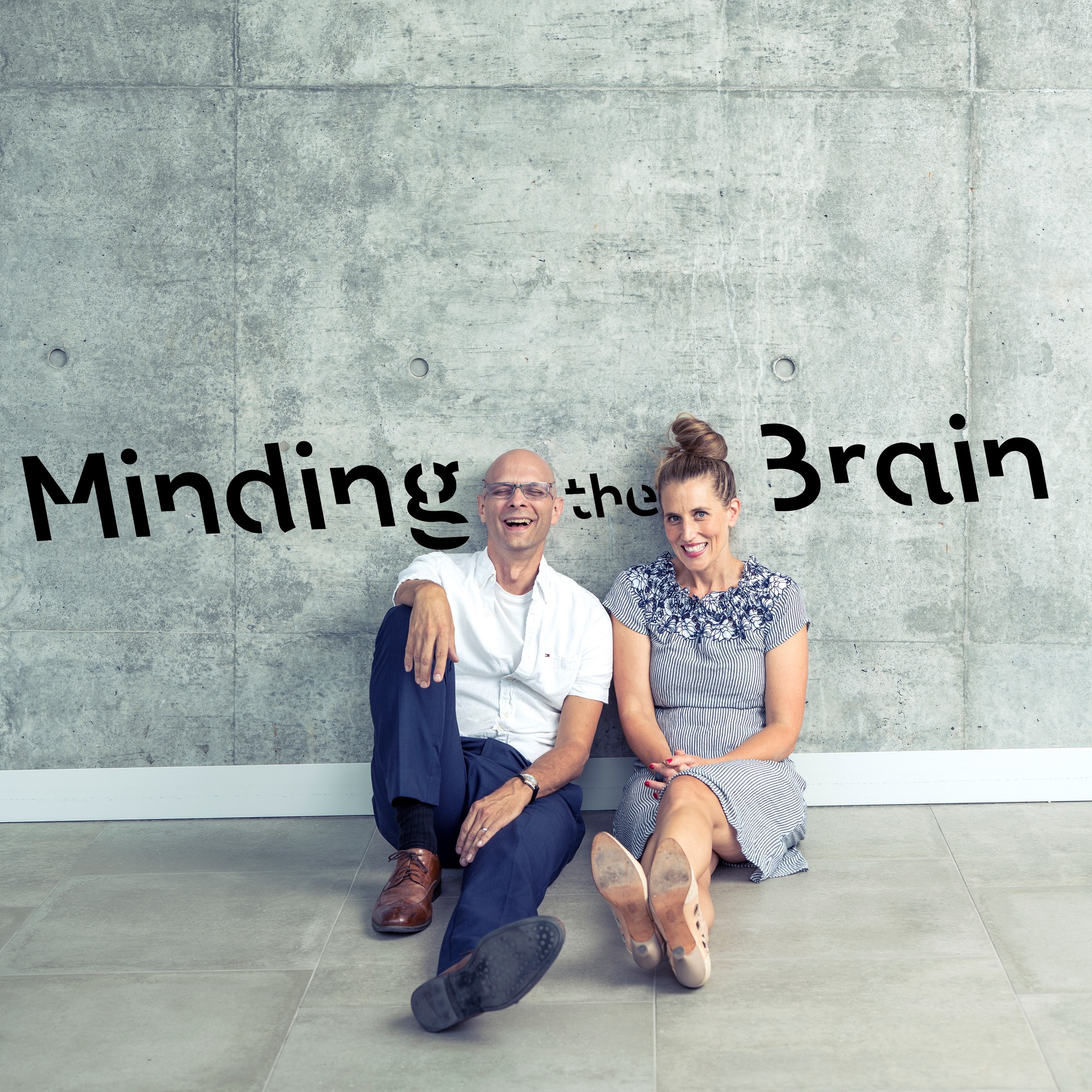
Minding the BrainFake News with Gordon Pennycook – #72Jim interviews Gordon Pennycook about the phenomenon of fake news. What types of misinformation tend to spread? What role will generative AI play in the [...]
2024-04-0124 min
i4L Podcast: Uncomfortable Wisdom for a Better Life: Information & Insight for Your Life™The Pitfalls of Intellectual Snobbery - Beware the Fallacy of Assuming Something is Smart Just Because it Sounds SmartIn this episode, we discuss the pitfalls of intellectual snobbery and the fallacy of assuming that something is smart just because it sounds smart. We examine examples of nonsensical text that are used in academic writing, business jargon, political speeches, and pseudoscience. We explain how to identify such language and highlight the importance of using clear, concise, and logical language to communicate ideas effectively. Beware of the dangers of assuming that complex-sounding phrases are synonymous with intelligence or knowledge.Here are a few sources that discuss the use of pseudo-intellectual language and its potential harm: "T...
2023-04-1208 min
Scamapalooza with Nicholas J. JohnsonDeepak Chropa's Bullshit with Gordon PennycookI have long suspected that Deepak Chopra spouts garbage. Despite being a trained physician, the author and self-help guru’s trademark new-age ramblings have always struck me as little more than pseudo-scientific garbage.
But, I’m also the kind of guy who doesn’t like to dismiss ideas out of hand, just because I don’t understand.
It turns out that my instincts were correct. A 2015 study in the journal Judgment and Decision Making showed that many of Chopra’s tweets are indistinguishable from a randomly generated sentence using Chopra's favourite buzz-words.
They are—according to...
2023-03-0735 min
A Bit More ComplicatedEpisode 6 - What's Up With Horseshoe Theory? with Dr. Jake Womick and Tom CostelloIn this episode, we interview Jake Womick and Tom Costello about psychological similarities and differences between liberals and conservatives. Jake is a postdoctoral scholar working with Dr. Kurt Gray at UNC. Tom is working with David Rand at MIT & Gordon Pennycook at University of Regina. We hope you enjoy this conversation.
Manny and Jake's article on this topic.
Evidence that conservatives think differently than liberals:
Reducing uncertainty & ambiguity
Wanting order/closure.
Emphasizing purity, sanctity & loyalty
Rigid thinking
Viewing threat & danger
Upholding status quo
Evidence that extremists on both sides:
See their beliefs as...
2022-05-091h 22
Non-Diet NaturopathEp 19. Welcome back! Personal reflections on a challenging yearIn this episode I share why this podcast went quiet in the past year. I discuss divorce, compassion & critical thinking, and working as a holistic health practitioner in communities burdened by COVID misinformation. It contains a lot of personal details and reflections. If that's not your thing, no worries - scroll on.SHOW NOTES:02:30 On being a "muscles and bones" yoga teacher instead of a philosophising one05:40 Prajna and critical analysis as ways of inner knowing11:33 The place of compassion in reducing COVID transmission16:13 Moving through separation and divorce18:40 Career chan...
2022-03-1744 min
Follow the ScienceAlternatives to Censorship w/ David Rand & Gordon Pennycook [Episode 28 Rebroadcast]Social media companies may claim censorship is for our own good – to shield us from misinformation – but the process has no transparency. And Facebook and Twitter algorithms are set up to amplify sensational claims, to push people into polarized camps, and delude users about the popularity and value of what are often fringe ideas. Social scientists David Rand and Gordon Pennycook have studied social media behavior and found that people care about sharing accurate news, but often give in to temptation to share with what’s likely to be popular, rather than accurate. But there are solutions. The res...
2022-02-0528 min
Synapsen – ein Wissenschaftspodcast(36) Kopierfehler im Kopf5G ist das wahre Virus, die Corona-Impfung ist ansteckend, an Masken kann man ersticken: In der Pandemie wimmelt es von Fake News. Dabei tappen wir gedanklich in Fallen, die die Forschung längst kennt: Kausalfehler, Bestätigungsfehler, Framing, Dunning Kruger-Effekt. Der Kognitionspsychologe Markus Knauff erklärt im Gespräch mit Wissenschaftsredakteurin Korinna Hennig, was Falschnachrichten mit unserem Denken machen, was ihre Verbreitung mit Aufmerksamkeit zu tun hat und wie man kognitive Verzerrungen vermeiden kann.
Die Hintergrundinformationen
• Fake News, Social Media und Aufmerksamkeit | Gordon Pennycook et al: Shifting attention to accuracy can reduce misinformation online: "Shifting attention to accuracy can reduce misinf...
2021-08-2748 min
Follow the Science28. Why Social Media Has Misinformation Overload w/ David Rand & Gordon PennycookScience doesn’t lend itself to fact checking, since science isn’t a set of facts but a process for finding things out. That’s why Facebook got criticized for deleting posts suggesting the virus causing Covid-19 might have had something to do with a lab accident. The reality is we don’t know where the virus came from. This week, social scientists David Rand of MIT and Gordon Pennycook of the University of Regina will discuss why there’s so much misinformation on social media, and how to fix the problem without employing fact checkers.“Foll...
2021-06-2527 min
The Science PawdcastSeason 3 Episode 16: Northern Lights, Dog Aggression and Dr. David Rand and Gordon Pennycook on why people spread misinformationSend us a textThis week on The Science Pawdcast, we chat about a new study that unlocked the physics of Northern Lights! In Pet Science, we chat about a study that dug into what makes dogs aggressive. Our expert guests are Dr. David Rand and Gordon Pennycook, who had their study about how misinformation spreads recently published in Nature. It's an amazing discussion about what can cause everyday people to share information that is false online. As this week was CRAZY we ran out of time for Woo or Wow, but there is a fun and sill...
2021-06-171h 08
Two Psychologists Four BeersBullshit, Misinformation, and What to Do About It (with Gord Pennycook)Psychologist Gordon Pennycook joins the show to talk bullshit and misinformation. What is bullshit, and why do some people fall for it more than others? Why does misinformation spread so readily, and what can be done to stop it?
Plus: Yoel asks some perfectly reasonable questions about COVID's origins, and Mickey indulges in some Canadian content.Special Guest: Gordon Pennycook.Links:Voodoo Ranger IPA | New Belgium BrewingBeer – Bellwoods BreweryPrairie Blonde - Paddock Wood Brewing Co. - UntappdHome - Pabst Blue Ribbon : Pabst Blue RibbonLive Transmission Milkshake IPA | Flying Monkeys Craft BrewerySpaten | LCBOAn an...
2021-01-271h 22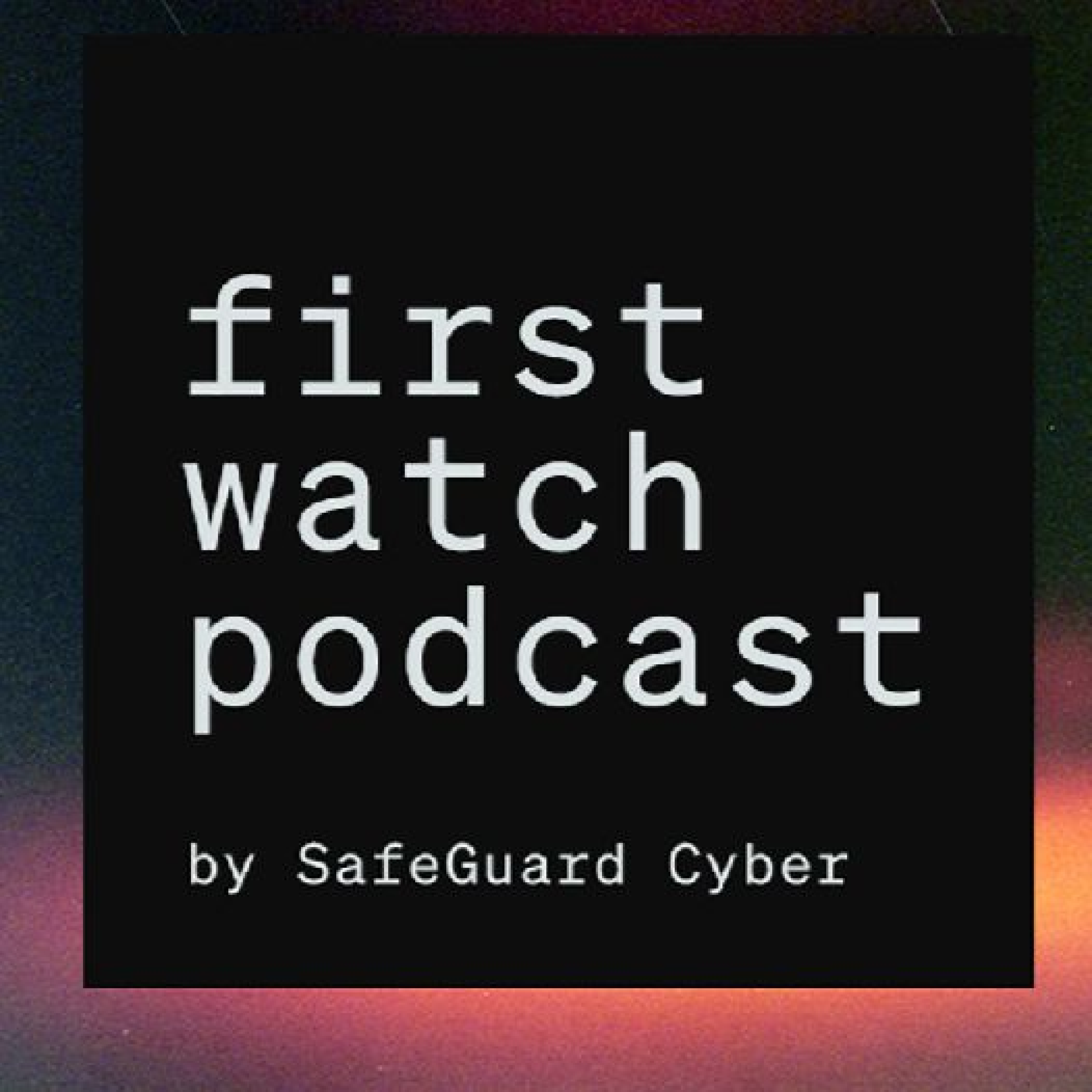
First Watch PodcastUnderstanding Why People Share Fake News on Social MediaWe talk with Dr. Mohsen Mosleh of MIT's Sloan School of Management, about research he's conducted with Dr. David Rand and Dr. Gordon Pennycook into the psychology of why people share fake news on social media — even if they know it's fake! The findings from the study challenge preconceived notions, and we talk about design mechanisms that have been shown to help mitigate the spread of fake news.
2021-01-2638 min
Think It Through: the Clearer Thinking PodcastEpisode 9: The Epistemic Irresponsibility Known as "Bullshit"Send us a textIn this episode, April uses the definition of “bullshit” described by American philosopher Harry G. Frankfurt in his seminal 1985 essay, “On Bullshit” to discuss its impact on our lives and ways to see through it. As you can probably tell, she also says “bullshit” a lot. Episode 9 Show Notes I purchased the big red Bullshit Button that you hear in this episode from Amazon if you want one. I use it to annoy my students, but it’s also handy for annoying your kids, significant other, and pets....
2020-11-0317 min
The Dissenter#380 Gordon Pennycook: Analytic Thinking, Reasoning, and Fake News------------------Support the channel------------
Patreon: https://www.patreon.com/thedissenter
SubscribeStar: https://www.subscribestar.com/the-dissenter
PayPal: paypal.me/thedissenter
PayPal Subscription 1 Dollar: https://tinyurl.com/yb3acuuy
PayPal Subscription 3 Dollars: https://tinyurl.com/ybn6bg9l
PayPal Subscription 5 Dollars: https://tinyurl.com/ycmr9gpz
PayPal Subscription 10 Dollars: https://tinyurl.com/y9r3fc9m
PayPal Subscription 20 Dollars: https://tinyurl.com/y95uvkao
------------------Follow me on---------------------
Facebook: https://www.facebook.com/thedissenteryt/
Twitter: https://twitter.com/TheDissenterYT
2020-10-191h 07
Opinion Science#13: Fake News with Gordon PennycookDr. Gordon Pennycook studies why people share misinformation. His research has used many techniques to understand people’s ability to judge the accuracy of information, their willingness to share that information, and what we can do to encourage people to only spread true information. Some of the things that come up in this episode:There’s lots of coronavirus misinformation out thereSeeing fake news repeatedly makes it feel more true (Pennycook, Cannon, & Rand, 2018)Believing fake news is more about not paying attention than partisanship (Pennycook & Rand, 2019)Encouraging people to think about...
2020-07-0641 min
Hot Politics LabOnline Hot Politics Lab Meetings: Gordon Pennycook (15.5.2020)In this session of the Online Hot Politics Lab, Gordon Pennycook (U Regina) presented his work on the predictors of covid attitudes and behaviors as well as work on correcting misinformation which is very relevant to understanding the corona-crisis. The Online Hot Politics Lab meets every Friday at 3pm (CET). Everybody is welcome to join via Zoom: https://zoom.us/j/839478901
2020-05-1559 min
Super Awesome Science Show (SASS)Don't Fall For Fake NewsIn a 24/7 news environment, stories sometimes get the facts wrong. But normally, these lapses are not intentional. But recently, there has been an explosion in false, inaccurate, and harmful stories that are made with the sole purpose of convincing the public that a different reality exists. It’s known as fake news and on this week’s show, we’re going to explore its nature, how to diagnose it, and also how not to be fooled by it.
Our first guest is Amber Day, a professor at Bryant University. She reveals that fake news has a base in satire...
2019-10-0831 min
The Mind OnlineFake News: Finding It, Fighting ItDo you know how to identify fake news? MediaWise’s Katy Byron discusses teaching students how to determine what’s real on the internet, and Professor Gordon Pennycook exposes why people believe things that aren’t true. Educators! Get a professional development certificate for listening to this episode—issued by Learning for Justice. Listen for the special code word, then visit learningforjustice.org/podcastpd. And be sure to visit the show notes for this episode, for a full transcript and resources to help you teach the ideas explored by our guests.
2019-05-0327 min
On WisdomWisdom, Bullshit & Beliefs (with Gordon Pennycook)‘Wholeness quiets infinite phenomena?’ Does it, really?! Why do some people fall for pseudo-profound bullshit and others don’t? When we share fake news stories, is this because we're motivated to think they're real, or because we don't bother to think at all? And why do scientists fight tooth-and-nail over the mechanisms involved, such as “System I vs. System II”, “Fast vs. Slow” and other frameworks? Gordon Pennycook joins Igor and Charles to discuss the critical distinction between a liar and a bullshitter, the cognitive reflection test, the random Deepak Chopra quote generator, the Ig Nobel prize, motivated reasoning, climate change...
2019-04-0745 min
Data SkepticHuman Detection of Fake NewsWith publications such as "Prior exposure increases perceived accuracy of fake news", "Lazy, not biased: Susceptibility to partisan fake news is better explained by lack of reasoning than by motivated reasoning", and "The science of fake news", Gordon Pennycook is asking and answering analytical questions about the nature of human intuition and fake news. Gordon appeared on Data Skeptic in 2016 to discuss people's ability to recognize pseudo-profound bullshit. This episode explores his work in fake news.
2018-08-0328 min
Data SkepticDetecting Pseudo-profound BS A recent paper in the journal of Judgment and Decision Making titled On the reception and detection of pseudo-profound bullshit explores empirical questions around a reader's ability to detect statements which may sound profound but are actually a collection of buzzwords that fail to contain adequate meaning or truth. These statements are definitively different from lies and nonesense, as we discuss in the episode. This paper proposes the Bullshit Receptivity scale (BSR) and empirically demonstrates that it correlates with existing metrics like the Cognitive Reflection Test, building confidence that this can be a useful, repeatable, empirical measure...
2016-01-1537 min